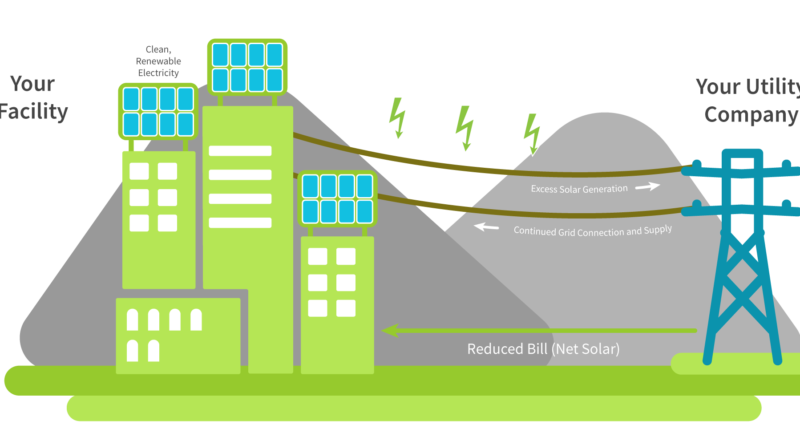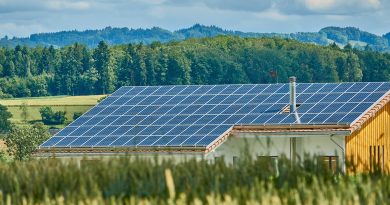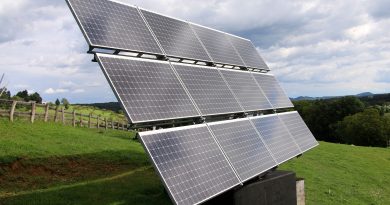SOLAR ROOFTOP – SOLAR MARKET WITH POSITIVE FUTURE POTENTIAL
INTRODUCTION:
Solar Energy is harness from the heat of sun rays. In addition, it is one of the forms of energy in which fuel is free of cost as well as clean and green. Solar Power is one of the most preferred renewable energy in the present era. In addition, it is getting promoted on a large scale to make its presence at every corner of the country.
Solar Rooftop is the modern concept to harness solar energy. Under this, every building whether home, industry, institution or commercial establishment can generate some solar power by installing PV panels on the rooftop. Most noteworthy, India has set a path to achieve 100 GW power capacity through grid-connected solar energy, out of which 40 GW will come through rooftop solar installations by 2022.
ADVANTAGES OF SOLAR ROOFTOP
Solar Rooftop advantages are enormous, some of them are as follows:
- There are savings in land requirements. Thus, the creation of value from under-utilized /unutilized rooftops
- Reduction in cost of interconnection with the grid.
- Savings in development of new transmission infrastructure
- Further, rooftop solar PV assists distribution companies (DISCOMs) by reducing the peak demand during daytime
- In addition, it helps in decreasing transmission and distribution (T&D) losses as the power is consumed at the point of generation
- Finally and most importantly, it reduces the dependence on grid power, diesel generators and is a long-term reliable power source for consumers.
INDIAN MARKET – PAST, PRESENT, AND FUTURE
The evolution of solar rooftops market in India is significant. The quality of components has increased and there have been drastic reductions in costs. In fact, SECI rooftop bids got quotations as low as INR 53,000 per kW in Gujarat, Maharashtra and Tamil Nadu and a quotation of INR 45,100 for North-eastern special category states. In addition, the electricity tariffs under the Renewable Energy Service Company (RESCO) mode have similarly come down to Rs 4.5 per kWh in Rajasthan and Rs 3 per kWh in certain special category states in just 7 years from tariffs of over Rs 17 per kWh, signifying an almost 75% reduction in tariff.
There are now around 1,000 rooftop installers in the country as channel partners for the Ministry of New and Renewable Energy. In order to propel the market, the Government provides enablers such as a 30% capital subsidy on the system cost for systems of residential rooftops, benefits of accelerated depreciation of 40%, encouraging financing of systems under the priority sector and lower interest rates.
However, despite the enablers; as of September 2011, India had achieved a solar rooftop installed capacity of around 1862 MW, as against the year 2022 targets of 40GW. Furthermore, the break-up of installed solar rooftop is as following:
| Sl. No. | Type of Establishment | Installed Capacity( in MW) |
| 1. | Commercial | 393 |
| 2. | Industrial | 798 |
| 3. | Public Sector | 294 |
| 4. | Residential | 377 |
Source: Bridge to India
GOVERNMENT ROLE
Ministry is implementing Grid Connected Rooftop and Small Solar Power Plants Programme which provides for the installation of 2100 MW capacity. This is a programme through CFA/ incentive in the residential, social, Government/PSU and Institutional sectors.
In addition, under the program, central financial assistance up to 30% of the benchmark is being provided for such projects in Residential, Institutional and Social sectors in the General Category States and up to 70% of the benchmark cost in the Special Category States. For the Government sector, achievement linked incentives are being provided. Subsidy/CFA is not applicable to commercial and industrial establishments in the private sector.
- All the State / UT ERCs have notified net/gross metering regulations and/or tariff orders for rooftop solar projects
- Concessional loans of $1375 million from the World Bank, Asian Development Bank and New Development Bank for solar rooftop projects.
- Suryamitra program for the creation of a qualified technical workforce and over 11 thousand persons have been trained under the program.
- In addition, an online platform for expediting the project, approval, report submission, and monitoring of RTS projects is in force.
- Further, geo-tagging of RTS projects, in coordination with ISRO, for traceability and transparency.
- Mobile app ARUN (Atal Rooftop Solar User Navigator) for ease of access of beneficiaries for request submission and awareness.
- Furthermore, Ministry-wise expert PSUs for implementation of RTS projects in various Ministries/Departments.
- Best practices guide and compendium of policies, regulations, technical standards and financing norms for solar power projects.
Thus, the Indian Solar Rooftop market has very bright and positive future potential in the coming years.




What’s up mates, how is the whole thing, and what you wish for to say about this piece of writing, in my view its genuinely awesome designed for me.
I have been browsing online more than 2 hours today,
yet I never found any interesting article like yours.
It’s pretty worth enough for me. In my view, if all site owners and bloggers made good
content as you did, the internet will be a lot more useful than ever before.
Oh my goodness! Amazing article dude! Thank you so much, However I am encountering difficulties with your RSS.
I don’t understand the reason why I am unable to subscribe to it.
Is there anybody else having the same RSS problems? Anyone who knows the answer can you kindly respond?
Thanks!!
Hello,
Thanks for your appreciation and showing interest towards our blog posts.